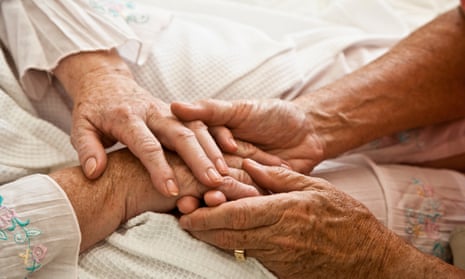Care homes are charging families for weeks after the death of an elderly relative in some instances, prompting a string of complaints to the competition watchdog that is investigating the sector.
The Competition and Markets Authority has received complaints about families being charged for sums that can amount to thousands of pounds to cover for the time it can take before a room can be relet.
Caroline Abrahams, director at Age UK, said it was “wholly unfair” to charge for rooms after someone had died and their room became vacant. “This is a really difficult and distressing time for relatives and the last thing they need is to be worried about money in this way.”
Many care homes charge the relatives of a deceased resident for a week so there is time to clear their belongings, but the CMA was told in submissions that families were being charged fees for “extended periods” after their relative’s room had been cleared.
The CMA launched its investigation before Christmas, and is scheduled to deliver its interim report by 1 June. The regulator has called for more residents and their relatives to come forward.
It is conducting a wider study into how the market works, but also whether there are grounds for consumer enforcement action. The regulator has the power to make recommendations to the government and the industry about changes that need to be madeand can also threaten businesses with legal action if they are deemed to have breached consumer laws or engaged in unfair commercial practices.
One submission from the wife of a
residentsaid: “The emotion in moving a close relative from home to a care home is complex – guilt, feelings of failure, tragedy at the loss of the person you once knew and their transition into a person who can no longer understand anything or help themselves.
“People are very much at the mercy of availability, location and affordability. The demands on relatives are substantial. They have not got rid of their responsibilities, but developed other, different ones.
“I firmly believe that this dishonesty in charging must be dealt with. There should be a lifetime cap on fees for the individual. Their income tax could be reduced during the years a person was in care.
“Unlike other risks in life, care needs are not pooled. Illnesses, like cancer, are looked after by the health service, free. If you are unfortunate enough to get dementia then you face the need to pay.
“The current model of care in the UK is under-funded, unclear and unfair. It needs a proper independent investigation.”
In response care homes defended their contracts and said local authorities were not paying enough toward the cost of care. Others said it necessary to charge families when a room was unoccupied.
Charles Taylor, who runs two care homes in Oxfordshire, tries to address the issue of charging for rooms after the resident has died.
He said: “We charge families for a one-week period post the death of a resident. Family members are suffering from a bereavement at this time and often take this week to remove personal items from an individuals’ room, and to say goodbye to the person in the place of their passing.
“The alternative is for the care home to fill the bed the day following the death and to pack up the individuals’ belongings to be collected, which does not allow the family the time to grieve properly.”
Care England, the trade body for care homes, said arrangements for paying for rooms after the death of a resident were stipulated in the contracts.
Its chief executive, Martin Green, said: “This [ will of course depend on the contract, and like many other agreements, the payments do not stop the moment you die, rather there are contractual arrangements which the person’s estate is responsible for.”
In a statement, the CMA said: “We are very keen to hear from care home residents and their relatives who have experienced issues such as unexplained or ‘hidden’ charges, unexpected fee increases or occasions when they feel that complaints have not been handled fairly.
“As part of our review we are looking at whether care homes are complying with consumer law so we’re encouraging people to come forward with any evidence of unfair terms or practices. We will be reporting our initial findings by the start of June.”
The CMA has also received complaints about a lack of transparency around care home fees, difficulties moving homes after a fee increase, and self-funders paying more than state-funded residents for the same services.
